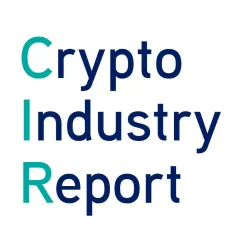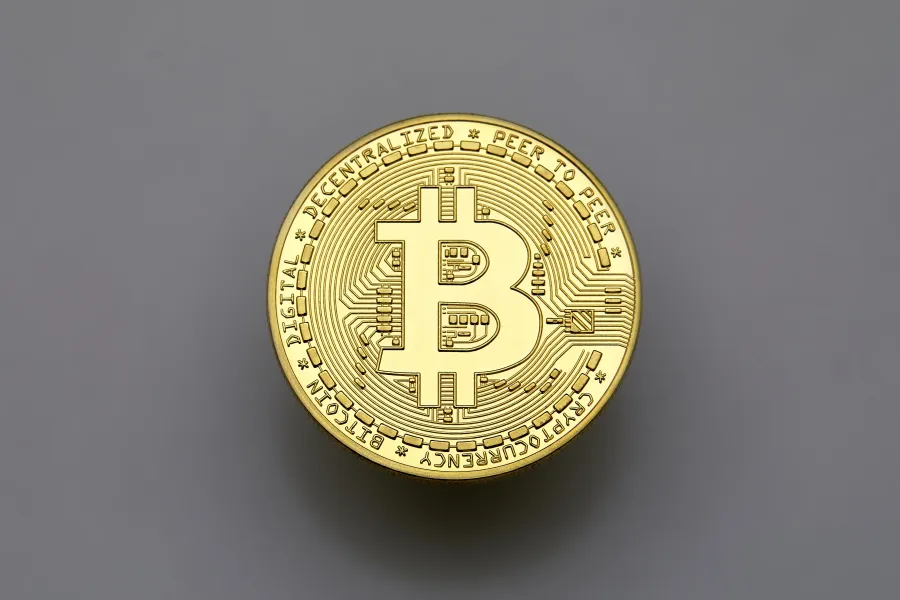China wants an Internet 3.0, while Hong Kong gears up for crypto trading launch
This week, our blockchain experts assessed the following topics:
- China wants an Internet 3.0, while Hong Kong gears up for crypto trading launch
- DeFi Chasing TradFi’s Interest Rate Hikes
- An update on the digital Euro
- The battle between the SEC and crypto players enters yet another round
Our bi-weekly Crypto Industry Report provides you with valuable information on the global crypto industry - picked and analysed by our blockchain experts.
China wants an Internet 3.0, while Hong Kong gears up for crypto trading launch
Recently, at the Zhongguancun Forum, The Beijing Municipal Science and Technology Commission and the Zhongguancun Science and Technology Park Management Committee, released the ‘Beijing Web 3.0 Innovation and Development White Paper (2023)’. The whitepaper acknowledges the importance of Web3 technology and its role in developing the next iteration of the internet.
However, some commentators argue that the Beijing's Internet 3.0 white paper is more about the metaverse and AI than it is about Web3 and crypto. While the paper touches on Web3 with some focus on non-fungible tokens (NFTs) and a whole lot more on the metaverse, artificial intelligence (AI), XR interactive terminals, and content production tools, it doesn’t touch on cryptocurrencies. This, of course, shouldn’t come as a shocker since China banned cryptocurrencies back in 2021.
Still, the publication of the white paper adds Beijing to the list of cities in China that are working to build their metaverse capacities. During the forum, Yang Hongfu, the director of the Zhongguancun Chaoyang Park Management Committee, also revealed that the city plans to invest 100 million Yuan (~$14 million) in local Web industries annually until 2025. Furthermore, the launch of the white paper has occurred at an interesting time, since Hong Kong also published their plans on implementing their new crypto regulations.
The new rule book, which was announced by the Hong Kong Securities and Futures Commission (SFC), is set to allow retail investors to participate in crypto trading beginning June 1, 2023. Cryptocurrency exchanges will be required to apply for licenses starting in June, with those not willing to do so requested to close shop. In addition, the Hong Kong SFC has also shared that stablecoins will not be provided for retail trading until regulations are established.
Licensed exchanges will be allowed to sell digital currencies that meet specific liquidity and capitalisation requirements. Following the move, crypto exchange Huobi Hong Kong has now started offering crypto spot trading to both institutional and retail clients after applying for the virtual asset exchange license. The exchange plans to list Bitcoin and Ether, among other major coins, that will be eligible for trading in the region. Speculations are rife that the framework Hong Kong has launched around cryptocurrencies will act as a ‘testing ground’ for China as it perhaps considers lifting the ban on crypto trading.
Furthermore, the Cybersecurity and Technology Crime Bureau (CSTCB) of the Hong Kong Police Force has announced the launch of its new metaverse platform called ‘CyberDefender’. The platform is meant to educate the public about the possible threats associated with the metaverse, as well as crime prevention. Some of the crimes mentioned that could happen in the metaverse, just as in the physical world, include investment fraud, sexual offenses, theft, and unauthorised access to systems.
DeFi Chasing TradFi’s Interest Rate Hikes
As yields in Traditional Finance (TradFi) shoot up (U.S. government debt yields are up 5%), the tokenisation of traditional real-world assets is becoming more popular. Demand for tokenised treasury yields is rising with the merged market capitalisation of tokenised money market funds around $500 million.
The rise in the demand for tokenised RWAs backed by interest yielding government bonds is a result of the many different projects that have been launched and are still launching. Some of these projects include Back Finance, OpenEden, and Ondo Finance, among others. Ondo Finance, for instance, launched a tokenised fund based on the U.S. treasuries and corporate bonds earlier this year.
While there’s no denying that TradFi entities are on the outlook for robustly built protocols that they can have confidence in, DeFi requires TradFi to co-design safeguards as well as bring real-world assets on-chain. It’s a symbiotic relationship that can help boost institutional adoption and trust while helping DeFi expand its collateral options, lending capabilities, and product offerings. For DeFi protocols to follow suit with the traditional world, they inevitably have to offer higher interest rates to attract capital and remain competitive.
On a different, however, still related note, the higher interest rates that are manifesting in traditional finance are making its way into DeFi native interest rate products. As such, DeFi flagship project MakerDAO is currently seeking to increase its savings rate to 3.33% from the current 1% rate approved in December 2022. The proposed increase will be voted on by the MakerDAO community and is expected to have a broader impact on rates across the DeFi sector if approved.
An update on the digital Euro
The European Central Bank (ECB) recently published the results of its first Digital Euro prototype. The Digital Euro is a project launched by the ECB to create a currency that can complement cash in a digital form. The prototype exercise was carried out to look at whether there would be sufficient technology to support an offline Digital Euro. Currently, the project is still undergoing evaluation, and the ECB is expected to publish a legislative paper on it in the near future. However, according to Fabio Panetta, a member of the European Central Bank's Executive Board, a Digital Euro will most likely be launched in the next three to four years with no exact timeline issued.
The results come a few months after the ECB chose four organisations, Amazon, Worldline, Nexi, and CaixaBank, to try out front-end prototypes for various scenarios. But the ECB isn’t the only central bank selecting large partners to pilot a CBDC. The Central Bank of Brazil picked 14 institutions, including Microsoft and Visa, to take part in the testing of the Digital Real, its CBDC. The testing process will commence in mid-June 2023. Besides the two large tech companies, major local banks like Banco do Brasil, Bradesco, Nubank (digital bank), and Itaú Unibanco will participate in the testing phase of the CBDC project.
While still on the topic of CBDCs, Japan has made major strides in its CBDC project. It finalised the second phase of its CBDC experimentation and will be proceeding to the pilot stage. Dubbed ‘Proof of Concept Phase 2’, the Bank of Japan’s experiment explored the comparison between an account-based and token-based CBDC. For the latter, no blockchain but a non-RDB (NoSQL) databases were used that are said to have high processing speed and performance scalability. As the study found, both, the account-based and token-based model have their advantages and disadvantages. It also looked at how to manage holding limits if an individual user has multiple accounts with separate intermediaries. The Bank of Japan intends to arrive at a definitive verdict about the launch of a CBDC by 2026.
The battle between the SEC and crypto players enters yet another round
The regulatory feud in the U.S. continues. Gemini, a U.S.-based digital currency exchange, and crypto lender Genesis have submitted a motion to have the lawsuit filed against Gemini’s Earn lending service dismissed. The U.S. Securities and Exchange Commission (SEC) filed the lawsuit in January, accusing the two companies of breaking securities laws by offering users unregistered securities. Following the lawsuit, Genesis filed for bankruptcy.
Before it was stopped in January, Gemini’s Earn service, in partnership with Genesis, made it possible for users to lend their coins and earn a yield. The filed dismissal request now claims that the transactions made on Earn were loans and not securities. Genesis further argued that all the customer-facing operations of the program were handled by Gemini. The latter stated that it only acted as a transfer agent for the program, and called the lawsuit by SEC ‘ill-conceived’. Gemini has also proffered a master claim to refund 232,000 Earn customers over $1.1B in assets.
The ongoing legal battles between crypto companies and U.S. regulators have led to increased scrutiny in the crypto sector, forcing Gemini, like many other crypto companies, to escalate its expansion plans outside the US. The crypto exchange is now in talks with U.K. authorities to discuss a potential move to London. It has also set up a European base in Ireland, an engineering hub in India, and established a business team in Singapore. Just earlier in May, the U.S.’ biggest crypto exchange Coinbase launched an offshore derivatives exchange in Bermuda called Coinbase International Exchange.
Share post

Related Posts

To be continued: SEC pushes back at Coinbase
SEC pushes back against Coinbase's claim of no regulatory jurisdiction, stating the crypto exchange knowingly violated securities laws. Meanwhile, Gemini, owned by the Winklevoss twins, files a lawsuit against Digital Currency Group and CEO Barry Silbert alleging fraud and deception following the collapse of a lending venture. The Bank for International Settlements survey reveals that 93% of central banks are working on Central Bank Digital Currencies (CBDCs) which are seen as potential geopolitical policy tools and a challenge to the dollar's dominance. The race for a Bitcoin ETF intensifies, with BlackRock refiling its application featuring Coinbase as the market surveillance partner, as the Grayscale Bitcoin Trust's discount to net asset value narrows, potentially indicating the transformation into a proper ETF.

BlackRock fever: The ETF filing spree and institutional appetite
BlackRock filed for a Bitcoin ETF with the SEC, inspiring similar applications from firms like WisdomTree, Invesco, and Fidelity, and boosting Bitcoin's value. Traditional finance institutions such as Fidelity and Nasdaq are showing increased interest in crypto, with moves towards exchange and custody services. The defunct crypto exchange FTX, under new CEO John Ray III, is planning a potential revival after recovering significant assets. Meanwhile, the IMF is developing a global CBDC platform for cross-border transactions and DAI, a major stablecoin, is diversifying its backing from USDC to include real-world assets.

SWIFT explores blockchain interoperability
SWIFT has partnered with Chainlink to experiment with leveraging its infrastructure for transferring tokenized value across blockchain networks. The trials will address interoperability, regulatory challenges, and operational drawbacks for financial institutions in a blockchain environment. Chainlink will provide connectivity between private and public blockchains. SWIFT's findings will be published later this year.

BRC-20: Innovating on Bitcoin is the new cool
A new Bitcoin “token standard” called BRC-20 is the hottest thing right now in the crypto space. It was introduced in March 2023 by a pseudonymous person called Domo. Bitcoin Request for Comment 20 (BRC-20) is an experiment that brings fungible tokens to the Bitcoin blockchain using the Ordinals protocol. Ordinals rely on ordinal theory, enabling the identification and tracking of individual satoshis within Bitcoin's existing supply, while also allowing them to be inscribed (associated) with data. Through this technique, satoshis (sats) are given ordinal numbers starting with zero. Anyone can add a script file to a sat to create and transfer a BRC-20 token on the Bitcoin blockchain. BRC-20 tokens are created using three functions: deploy, mint, and transfer.

US versus EU: Giants fighting for regulatory clarity
It is official now: The European Parliament voted overwhelmingly in favour of Markets in Crypto Assets (MiCA), legislation that will guide the crypto sector in all 27 European Union member states. 517 parliament members voted for it, while 38 voted against it. This approval makes Europe the first continent with comprehensive rules for cryptocurrencies. Also, it means that all EU member states will have unified crypto regulations. So, if a crypto business is approved in one EU member country, it could easily expand operations to another member state. The EU’s milestone was lauded by Binance as well as Kraken and Coinbase.

Ethereum: Another milestone reached with the Shanghai Update
On April 12, 2023, Ethereum successfully executed the planned Shanghai update also known as Shapella. The upgrade allows validators to unstake their staked ETH and withdraw their rewards, as well as staked ether if chosen. Now that another level of uncertainty has waned for the biggest smart contract blockchain, this new feature could attract more investors to stake their ether.

CFTC versus Binance:
Clash of the titans
The world’s leading crypto exchange by volume, Binance, alongside its CEO, Changpeng Zhao, and ex-Chief Compliance Officer, Samuel Lim, are being sued by the US Commodity Futures Trading Commission (CFTC).

Stablecoin USDC briefly lost its
peg. What do we learn from this?
One of the top stablecoins by market cap, USD Coin (USDC), de-pegged briefly from the US dollar on March 11 following the collapse of Silicon Valley Bank (SVB). Circle, the stablecoin’s issuer, held $3.3 billion in USDC reserves with the bank, which caused panic as investors rushed to withdraw their funds, assuming USDC could implode because of insufficient backing. However, the amount represented less than 8% of the stablecoin’s reserves.

Ethereum Shanghai upgrade pushed to April: Will there be too much selling pressure?
Ethereum stakers have been eagerly awaiting the Shanghai upgrade, which will enable them to withdraw their staked ether. Stakers’ funds have been locked since Ethereum introduced the proof-of-stake Beacon Chain in December 2020. The upgrade was originally slated to take place sometime in March but was pushed by about two weeks to April during a recent execution layer meeting.

Are regulators trying to make up for it by cracking down?
Following the infamous events of 2022, US regulators are turning up the heat on crypto services and products in 2023. One of the services they have targeted recently is custodial crypto staking, a process whereby customers have a financial service provider lock up their coins with a blockchain protocol over a certain period of time in exchange for rewards. This comes as no surprise since the SEC’s chairman, Gary Gensler, previously said that crypto staking looks very similar to lending. US crypto exchanges that offer this service are, therefore, in the SEC’s line of fire.